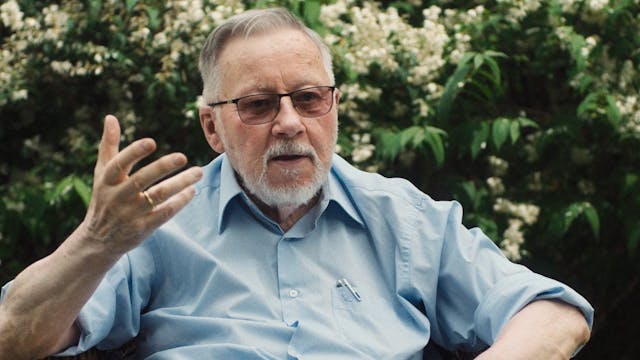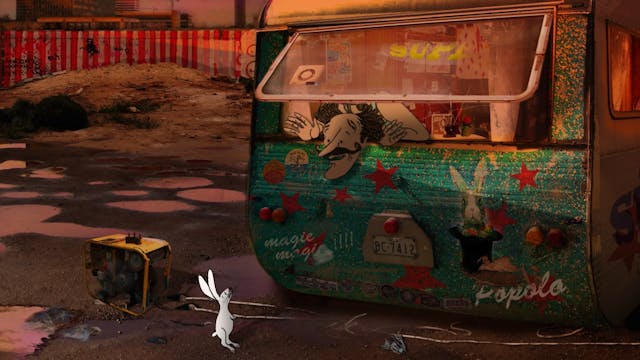MEDITERRANEAN FEVER
2022 Films
•
1h 49m
Waleed (40) lives in Haifa with his wife and children and dreams of a writing career while suffering from chronic depression. He develops a close relationship with his neighbor (a small- time crook) with an ulterior plot in mind. While the scheme turns into an unexpected friendship between the two men, it leads them into a journey of dark encounters.
Directed by: Maha Haj
Written by: Maha Haj
Produced by: Thanassis Karathanos, Martin Hampel, Juliette Lepoutre, Pierre Menahem, Marios Piperides, Janine Teerling, Baher Abgariya
Cinematography: Antoine Héberlé
Editing: Véronique Lange
Production Design: Andreas Antoniou
Costume Design: Hamada Attalah
Make-Up: Mervat Hakroush, Ioanna Nika
Sound: Adrian Baumeister, Florian Marquardt, Henry Uhl, Jörg Weimann
Original Score: Munder Odeh
Visual Effects: Frédéric Geffroy
Cast: Amer Hlehel, Ashraf Farah, Anat Hadid, Samir Elias, Cynthia Saleem, Shaden Kanboura
Original Title: حمّى البحر المتوسط
Film Production Countries: Germany, France, Cyprus
Statement of the Director/s
About writing MEDITERRANEAN FEVER
I am a filmmaker who has a melancholic state of mind along with a sense of humor. This led me to write a thriller-drama about Waleed, a 40-year-old aspired writer suffering from chronic depression. Through this fictional male character, I pushed my opinions and daily thoughts to extremes. I know Waleed’s character and I am familiar with it. I developed a mockery of my dark side through a person that is similar yet different from me. While playing with life and death themes, I took Waleed to extremes that I never would have dared to reach.
My first film, PERSONAL AFFAIRS, expressed the identity of Palestinians living in Israel, on the West Bank, and in exile. The characters suffered from frustration, imprisonment, and hopelessness because of the complexity of their being Palestinians, the very same frustration and imprisonment from which Waleed, as a Palestinian living in Haifa, keeps on suffering.
In this film, and for this reason, I chose to focus on one personality and express the depression of an individual, in contrast to the one of an entire society. One will find that Waleed’s life is comforting and that it contains many most-demanding elements – such as a loving wife, happy children, comfortable parents, and a beautiful home –, elements of a successful and happy person which bring out the American dream in mainstream Hollywood movies. However, this is where my understanding of depression comes in; something deep, dark and mysterious is always missing. Eventually, Waleed reaches a dead end and decides that he is the only one who knows what his fate will be. He decides to put an end to his life to make it look like a natural death because of the responsibilities that come with being a father.
I introduced Waleed’s character to Jalal, a personality that I have always been drawn to. Jalal is a small-time crook, simple, optimistic, full of life and too down-to-earth to fall into depression. He is Waleed’s opposite. As a result, their encounter creates a comic scenario that is able to shed light on darkness in Waleed’s story. The two worlds shared by each of the two friends are what gives the characters their depth and a remedy to their existentialist crisis.
About shooting in Haifa
One third of Haifa’s population are Palestinians. Since the 1948 Occupation, some of its neighbourhoods and districts remained into ruins and neglected poor areas, like Wadi Saleeb, Wadi Nisnass, Halleesa, only to name a few. I shot in these districts to show the Palestinian side of the city. The film was shot in autumn, to yet again reveal the sad tormented aspect of this city, with the cloudy grey skies and the stormy dark sea. These colors and this sad mood contribute to Waleed’s depression and torment.
About the actors
Since it’s a character-driven film, the choice of the cast was of the utmost importance. It’s interesting that the two main actors were chosen in a completely different process: with Amer Hlehel, the minute I started writing the script, I thought of him as Waleed. One day, we sat together in a coffee shop and I told him briefly about the story and Waleed’s character. When he accepted to play Waleed, it helped me a lot while writing the character, because I had then Amer in mind, and it helped me develop the character. With Jalal it was a different story. I didn’t have any specific actor in mind and there were many auditions for that part, all of them were good I must say, but they weren’t Jalal, something was missing. The minute that Ashraf Farah walked into the room and read the first line, I saw Jalal, I saw him clearly and I was 100% sure of my choice. With the matching between him and Amer I saw my story unfolding in front of my eyes.
About the title
This disease affects people living in the Mediterranean area, it is a disease connected to that place. But the film talks about our other diseases: political, social and psychological diseases. I wanted to give a specificity to this particular place through this specific disease. It’s as if this disease is actually a real one in the movie, but in fact what I’m concerned about are those other diseases, those that are not examined in a medical lab or left undiagnosed and untreated.
About Waleed’s depression
Waleed is depressed but “still functioning”. That’s why it is called “functioning depression”. Waleed lives his depression on a daily basis, while walking in the streets, cleaning the house, being a father to his kids, or a true person in every aspect of his life. His depression wraps him, gradually devours him, but he is still living his life. He is also a father that loves his kids. A person suffering from depression is by no means indifferent to life or careless to others, or numb. It is quite the opposite, he cares too much about everything, and too much is the world within himself. That also may explain his care/his interest/his obsession with politics.
Biography of the Director/s
Maha Haj was born in Nazareth in 1970. She graduated from the Hebrew University of Jerusalem in English and Arabic literature. Her cinematic experience was derived from her work as an artistic designer in the productions of THE TIME THAT REMAIN by Elia Suleiman, THE ATTACK by Ziad Douairi, as well as ON THE HILL by Rafael Natjari.
She wrote and directed the short film ORANGES (2009) and the documentary BEHIND THESE WALLS (2010). In 2015, she shot her first feature film PERSONAL AFFAIRS which was selected at the Cannes Film Festival’s Official Selection “Un Certain Regard” in 2016 and critically acclaimed. The film also won the Haifa Film Festival’s Best Feature Award in 2016 and the Mediterranean Film Festival of Montpellier’s Critics’ Award, among others.
Filmography of the Director/s
2009 - ORANGES, Short
2010 - BEHIND THESE WALLS, Short
2016 - PERSONAL AFFAIRS, Feature
2022 - MEDITERRANEAN FEVER, Feature
Production Company:
Pallas Film
Thanassis Karathanos
E-Mail: [email protected]
Phone: +493456787323
Website: www.pallasfilm.de
World Sales:
Luxbox
Fiorella Moretti
E-Mail: [email protected]
Phone: +33171379934
Website: www.luxboxfilms.com
Up Next in 2022 Films
-
MR LANDSBERGIS
Vytautas Landsbergis is a music professor and a charismatic leader of the Lithuanian independence movement. In 1990, he took his country out of the Soviet Union and forced Gorbachev to recognise its sovereignty. 30 years after the historic collapse of the USSR, Mr Landsbergis shares the hidden st...
-
MY LOVE AFFAIR WITH MARRIAGE
From an early age, songs and fairytales convinced Zelma that Love would solve all her problems as long as she abided by societal expectations of how a girl should act. But as she grew older something didn’t seem right with the concept of love: the more she tried to conform, the more her body resi...
-
MY NEIGHBORS' NEIGHBORS
In a French building, the inhabitants seem to be dealing with the hazards of life: an ogre breaks his teeth on the very same day of the annual Ogre Feast, while being asked to watch over his neighbor’s kids; a magician cuts his assistant in half and her legs run off; a hiker and his dog spend sev...



